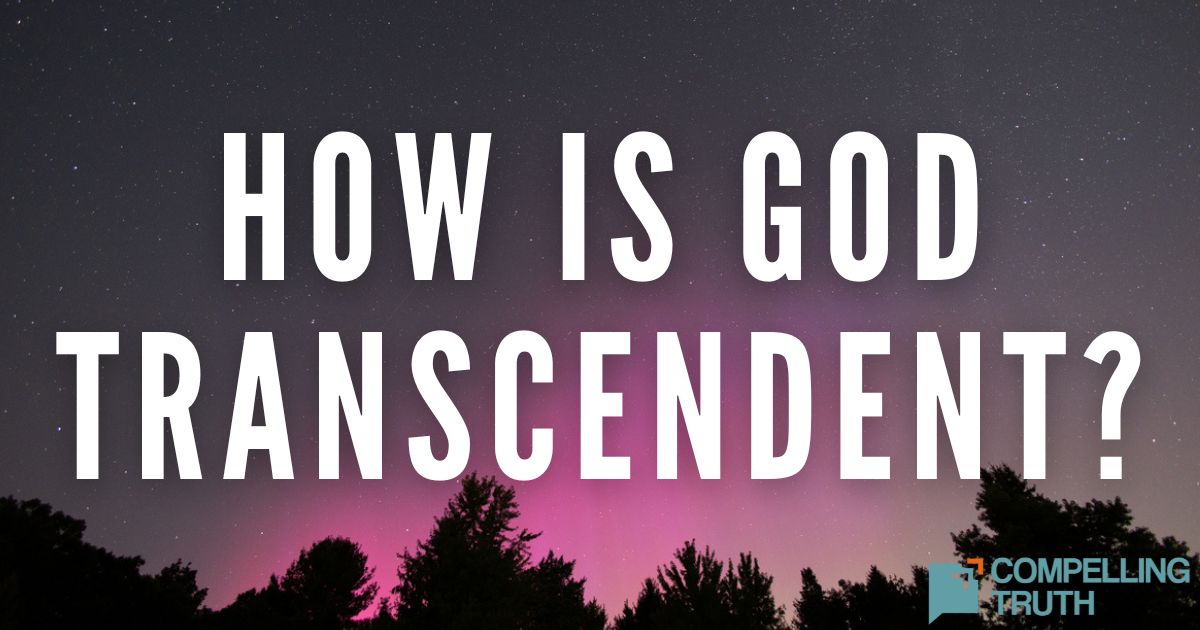God being omnipresent is part of what makes Him God. Another attribute of God is His justice. Were He not just, He would not be God. Because God is just, He judges sin. Because He is merciful and gracious, He provides a way of salvation and forgiveness through Jesus Christ. But for those who reject Jesus Christ, God must still be just (John 3:16–18). Hell was created to punish Satan and his demons (Matthew 25:41; Revelation 20:10), but all those who reject God will end up with the same fate. Hell is a place where individuals are removed from God’s favor and relational presence (2 Thessalonians 1:9; Revelation 14:10). God is and will always be omnipresent. He will always know what is happening in hell, and He will punish those in hell. God will be spatially present but relationally distant. Hell is a place of judgment for those who reject Jesus Christ, not a place where God's omnipresence is negated.
God was present at the time of creation (Genesis 1–2), and in the burning bush talking with Moses (Exodus 3), and when "the glory of the LORD filled the temple" (2 Chronicles 7:1–3), and when the Holy Spirit came upon the early church on the day of Pentecost (Acts 2:1–13). What a glorious truth! Also true, but often more difficult for us to comprehend or accept, is that God was likewise present as the rain flooded the earth, killing all but Noah and his family and the chosen animals (Genesis 6); He was present when He rained down fire and brimstone, destroying the cities of Sodom and Gomorrah (Genesis 19); and He was present when the waters of the Red Sea collapsed upon the army of Egypt:
"Then the LORD said to Moses, 'Stretch out your hand over the sea, that the water may come back upon the Egyptians, upon their chariots, and upon their horsemen.' So Moses stretched out his hand over the sea, and the sea returned to its normal course when the morning appeared. And as the Egyptians fled into it, the LORD threw the Egyptians into the midst of the sea. The waters returned and covered the chariots and the horsemen; of all the host of Pharaoh that had followed them into the sea, not one of them remained. But the people of Israel walked on dry ground through the sea, the waters being a wall to them on their right hand and on their left. Thus the LORD saved Israel that day from the hand of the Egyptians, and Israel saw the Egyptians dead on the seashore. Israel saw the great power that the LORD used against the Egyptians, so the people feared the LORD, and they believed in the LORD and in his servant Moses" (Exodus 14:26–31).
This passage highlights that the parting of the Red Sea is simultaneously a story of salvation for the people of Israel and the destruction of the Egyptian army. It is a revealing of God's perfect justice. It is a foreshadowing of the day of judgment.
While we cannot fully understand the mind and will of the Father, we do know that "God our Savior… desires all people to be saved and to come to the knowledge of the truth" (1 Timothy 2:4). We also know that "The LORD is slow to anger and abounding in steadfast love, forgiving iniquity and transgression, but he will by no means clear the guilty" (Numbers 14:18). We do not celebrate the nature or need for hell because we all deserve it. Ephesians 2:8 tells us that it is "…by grace [we] have been saved through faith. And this is not [our] own doing; it is the gift of God." We, who know that we have received this gift, should rejoice not only in the gift of eternal life, but more so in God, the Giver of this gift. We will enjoy eternity not only in His proximity, but truly in His presence, in complete fellowship with Him, fully cleansed of sin. "Beloved, we are God's children now, and what we will be has not yet appeared; but we know that when he appears we shall be like him, because we shall see him as he is" (1 John 3:2). We praise God for His patience and love and pray that many more will come to know Him and enjoy the fullness of His presence, beginning now and on into eternity (2 Peter 3:9).




